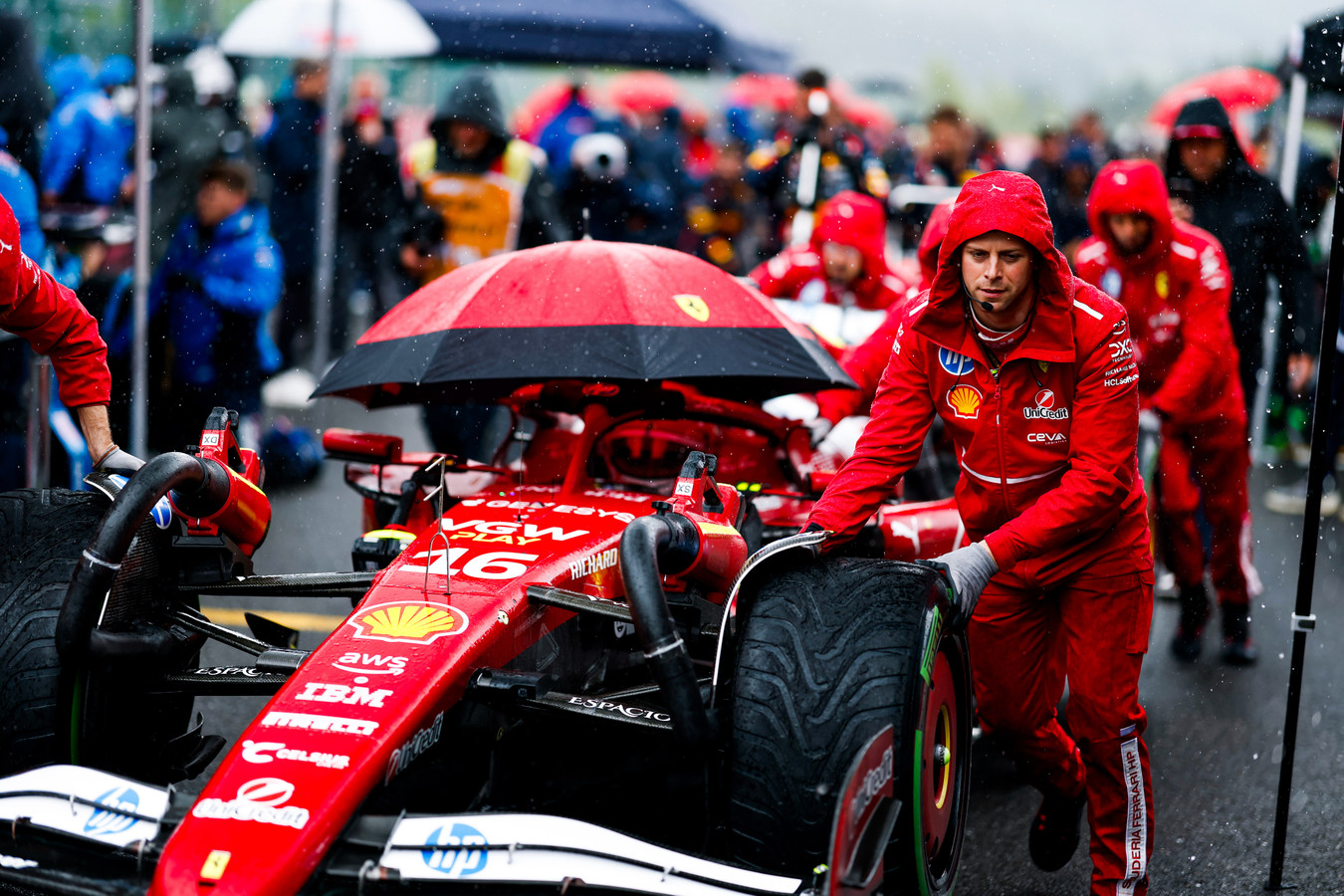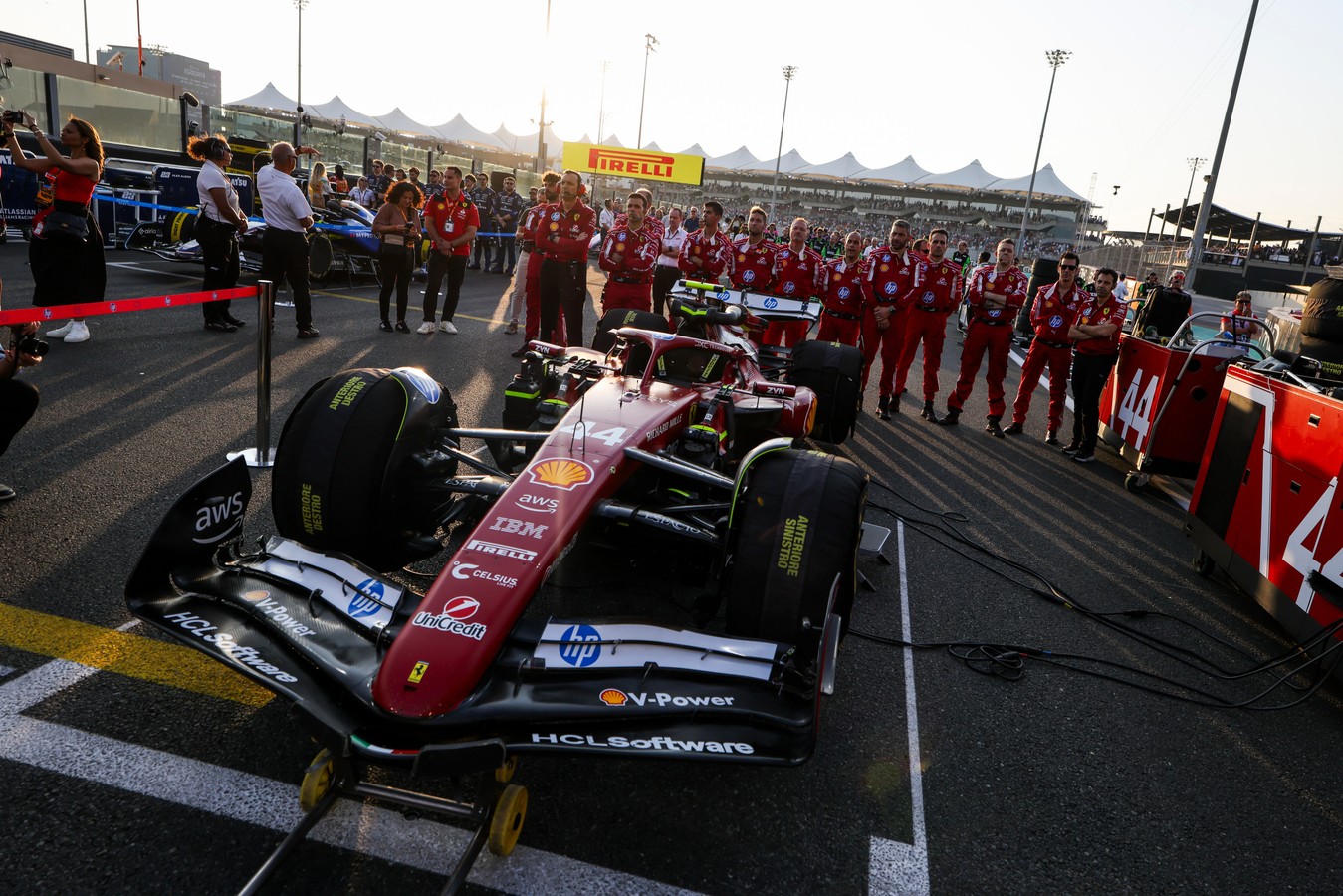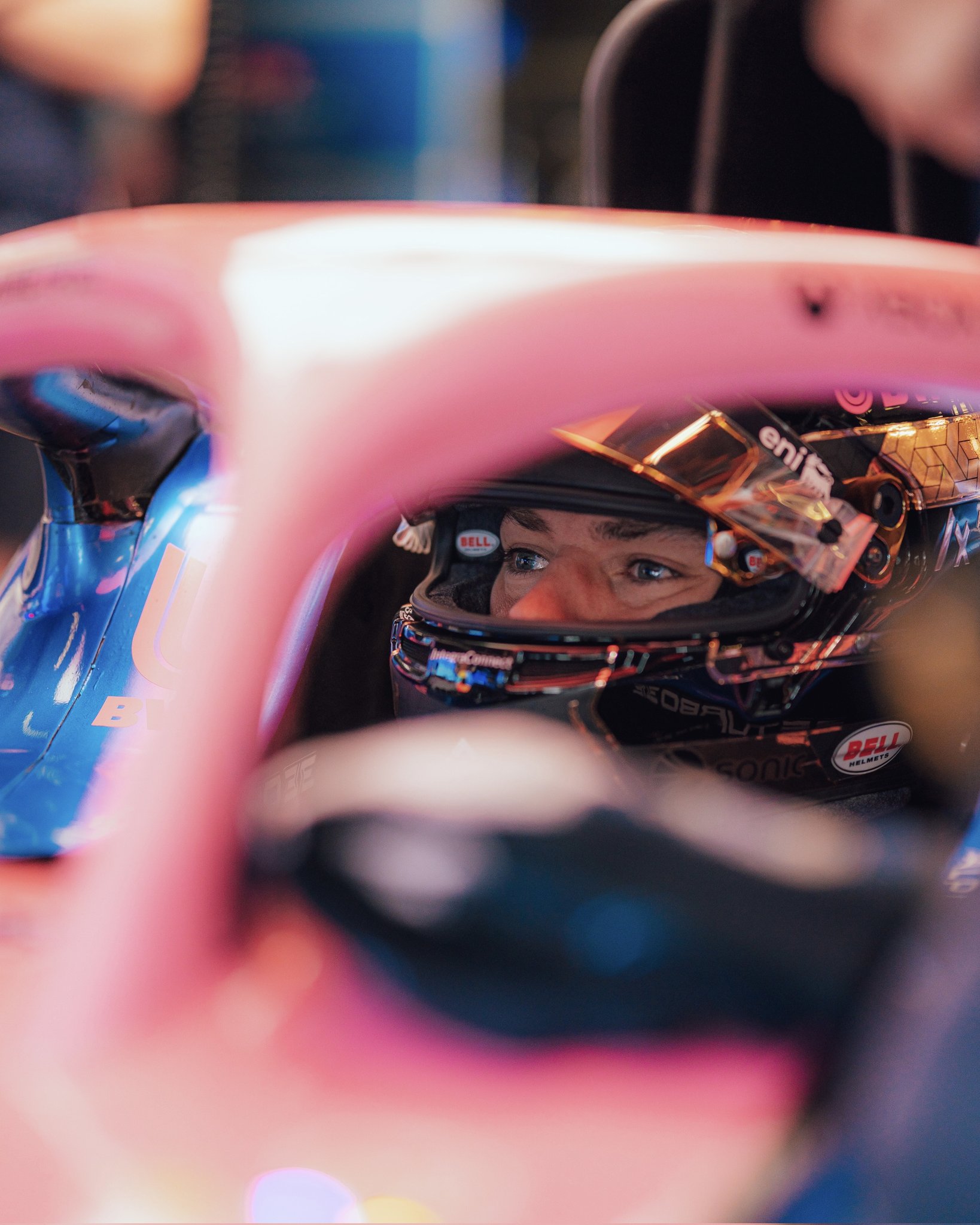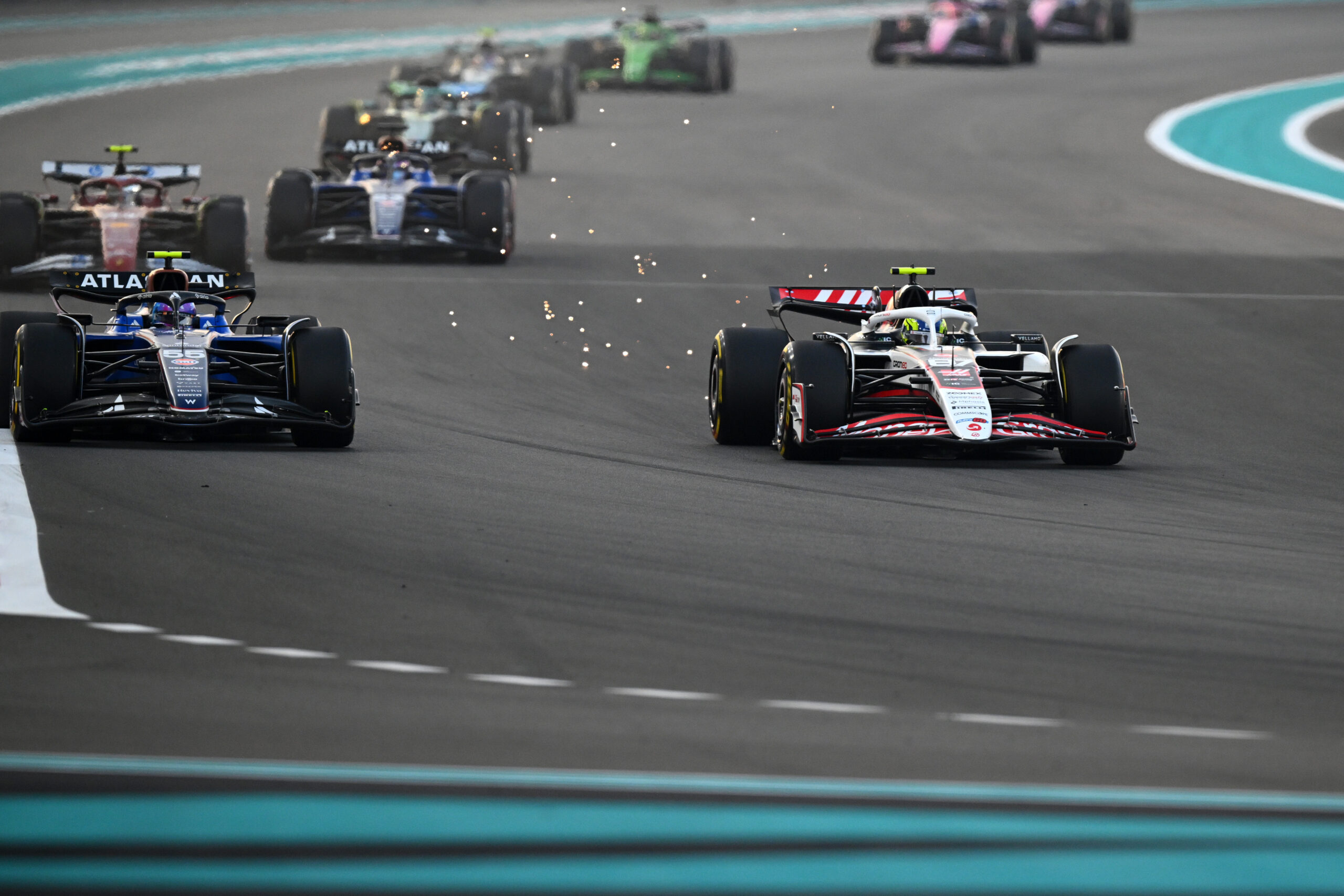The F1 Belgian GP once again faced the notorious and unpredictable Spa-Francorchamps weather. While both fans and teams have grown used to the circuit’s capricious climate, this year’s race was marked by an unusually long delay that sparked criticism and debate. Some in the paddock argued that the FIA was overly cautious in delaying the race start.
Red Bull’s Laurent Mekies questions timing
Recently promoted Red Bull team principal, Laurent Mekies, expressed confusion over how the FIA handled the conditions.
“So I think we are all surprised, I believe, by how late we started the race. I’m sure the FIA had its own considerations. But certainly for us as a team it surprised us. Because fundamentally we waited not only for the rain to stop, but also for pretty much the sun to come out. And then we still had many laps behind the safety car. So, you know, again, I’m sure the FIA had its own reasons.”
Mekies added that the delay and extended safety car affected performance set-up for the Red Bull team.
“In our specific case, having biassed cars towards right running, for sure it’s costing us performance, but it’s part of the game.”
Ferrari’s Fred Vasseur emphasizes visibility and safety
On the other hand, Scuderia Ferrari team principal Fred Vasseur defended the FIA’s conservative approach. He pointed out that while grip may have appeared sufficient, visibility was the true limiting factor during heavy rain – something that fans may not fully grasp from regular TV angles.
“You know, after 2021, when we had the issue in Spa, that we did some tests the week after or at the end of this season, in Fiorano, to limit the spray. We put different appendix on the car. But at the end the spray is coming from the floor. It means that there is nothing that we can do. Or you have to stop massively the performance of the car if you want to put something there.
“[…] Because I think for the fans it’s quite difficult to understand that they can’t drive. Limitation is not the grip, limitation is not the adherence, limitation is visibility. And I think it’s good also to show sometimes with the camera that they have on the helmet. Because you can understand in this situation that they see absolutely nothing.”
Drivers’ perspective from the cockpit
Vasseur shared a moment of radio communication with Charles Leclerc to underline just how severe the conditions were.
“You know, at one stage, we were speaking with Charles to change something on the steering wheel. And he said, guys, I can’t move the eyes in front of me […]”
Vasseur pointed out that the crash between Hadjar and Antonelli at Silverstone might have been prevented if visibility had been clearer.
“Remember what’s happened to… I don’t remember if it was behind, it was Kimi [Antonelli] or [Isack] Hadjar. But in Silverstone they had a crash in the same situation just because they didn’t see each other. And I think this is the most dangerous. Also because if there is a crash in front of you, you can’t see the car, you stop on track.”
Respect for the FIA’s decision from Vasseur
“I had a couple of times the question after the race, that do you think that we could have started the race a bit earlier or whatever. For sure. In terms of grip, for sure. In terms of visibility, I’m not sure,” concluded the Scuderia team principal.
Vasseur pointed out that had anything gone wrong, the FIA would have been the first to face criticism: “And we can’t blame them because we would be collectively the first ones to give them shit if something happened.
“And in the sense that we have to respect their decision. I can speak frankly because I have one car pushing on the high downforce, one car pushing on the low downforce. And I was comfortable to respect their decision because they are taking a huge responsibility also.”
McLaren’s Stella praises “wise” decision-making
McLaren team principal Andrea Stella echoed Vasseur’s stance, emphasizing that safety must always come first – particularly at a high-speed track like Spa. Citing the Silverstone incident between Hadjar and Antonelli – which occurred in comparatively drier conditions – Stella praised the FIA for its proactive decision-making at Spa.
“I think today the race was managed in a very wise way […]. Because we knew that there was a lot of rain coming. And I think in a circuit like this, if you make the calls late, it may be too late. And the outcome could be a difficult outcome.
“So, I think being on the forefoot is the right approach. And delaying the race allowed us to race in wet conditions and then, you know, we went into dry. But in fairness, we are in Spa, we didn’t even know how long the dry race would have been and we knew that there could have been wet conditions again at the end.
“So, I think from our position as a team, we always praise the work of the FIA when this is deserved. And I think this is one of the cases in which this should be praised.
“Because I understand that it would be quite entertaining to see cars going in wet conditions. But we all should be wary that the average speed in Spa is so high that the cars just displace such a large amount of water that it’s just impossible to see.
“We have seen already in Silverstone that a car drove into the gearbox of another car because it was impossible to see it and it was lower and there was less water.
So, we don’t want to see the same in Spa, so well done by the FIA.”
Caution over audience entertainment
While Mekies—and his lead driver—found the delay excessive, others in the paddock supported the FIA’s decision. The perspectives of Vasseur and Stella underscored a broader consensus in the paddock: safety must come before spectacle. Their support reflects the risks of racing in wet, low-visibility conditions.
The Silverstone crash involving Hadjar and Antonelli proved that point. In a sport where split-second decisions can have serious consequences, prioritizing driver safety over entertainment is understandibly the prudent choice.





